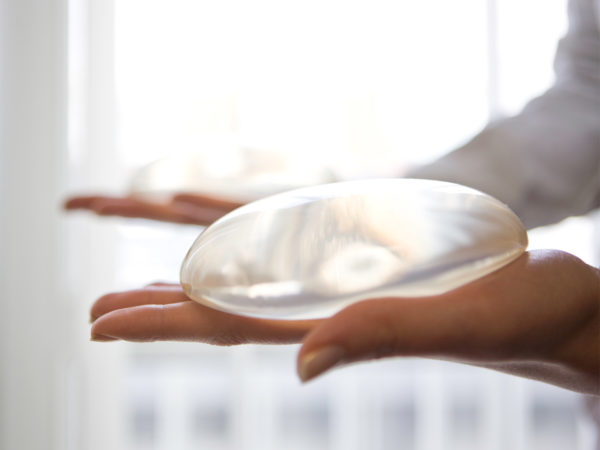Breast Implant Threat?
What can you tell me about the cancer associated with breast implants? Should women with implants have them removed?
Andrew Weil, M.D. | November 6, 2019

The first thing I can tell you is that the type of cancer linked to breast implants is extremely rare. It is a form of non-Hodgkin’s lymphoma (anaplastic large-cell lymphoma) that affects the immune system. In most cases, the disease is linked to implants with a textured or roughened surface. (It doesn’t appear to matter whether the implant is filled with silicone or saline.) We don’t know why textured-surface implants pose a greater risk, but I am happy to tell you that as of July 2019 these are no longer available in the U.S. and are being recalled worldwide. Beyond the cancer risk, by 2018 more than 50,000 women had reported symptoms referred to as “breast implant illness.” Representatives of these women met with FDA officials in 2018 to urge the agency to pursue more and better scientific studies of health problems that may be caused by breast implants. These include chronic fatigue, cognitive issues and muscle pain. According to the non-profit National Center for Health Research, doctors classify many of these as symptoms of autoimmune or connective tissue disorders, but in many cases, the women haven’t been diagnosed with such conditions.
The latest FDA action regarding breast implants has been to urge manufacturers to put a boxed warning on implant packaging spelling out the risks involved, which include fatigue and joint pain as well as cancer. Most women will not be aware of this unless they have done online research or a doctor has informed them of the risks. The FDA also wants manufacturers to warn women that implants don’t last a lifetime and that the risk of complications increases with the length of time they’ve been in place.
Reportedly, more than 400,000 women in the U.S. have breast implant surgery annually. Seventy-five percent of those operations are to increase the size of healthy breasts, while 25 percent are to reconstruct breasts after mastectomy. In many cases, women are replacing old implants that have caused problems or have broken or ruptured.
If you have breast implants and haven’t had problems, there’s no need to have them removed. But be sure to see your doctor promptly if you develop any persistent swelling or pain in the area of the implant or if you notice fluid buildup or lumps in the breast. A total of 573 cases of cancer and 33 deaths from the disease related to breast implants have been reported worldwide.
Andrew Weil, M.D.
Sources:
U.S. Food and Drug Administration, “Breast Implant-Associated Anaplastic Large Cell Lymphoma (BIA-ALCL).” March 23, 2017, fda.gov/MedicalDevices/ProductsandMedicalProcedures/ImplantsandProsthetics/BreastImplants/ucm239995.htm
Diane Zuckerman et al, “Breast Implant Illnesses: What’s the Evidence?” National Center for Health












